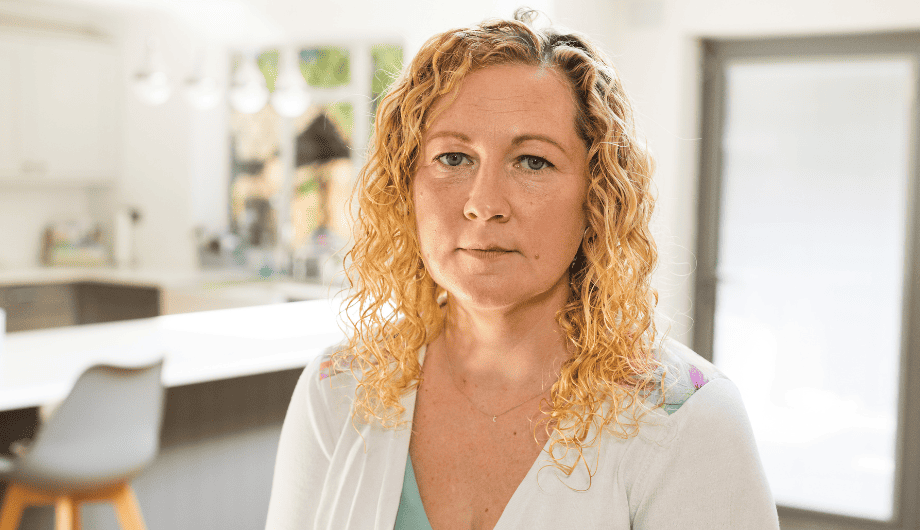
Saïna’s story – A song for my beloved grandpa, Ralph
Saïna opens up about how her grandfather’s dementia has affected her, and how songwriting has provided a release.
Some people with dementia qualify for NHS continuing healthcare (CHC) funding to meet the costs of some of their care needs, but the application process isn’t always easy. Here, we explain the facts you need to know about CHC and advice from our dementia specialist Admiral Nurses.
NHS continuing healthcare (CHC) is a package of care that is fully paid for by the NHS. It is for adults with long-term, complex health needs.
Normal NHS healthcare – for example, from a GP, District Nurse or in hospital – is free, but CHC covers other costs, such as home carers or care home fees.
To find out more about CHC and its equivalents throughout the UK, visit:
The first stage of applying for CHC involves a screening checklist, carried out by a health or social care professional, to determine whether the person qualifies for a full assessment of need.
The checklist is a brief assessment of the person’s needs in the following areas:
Each is given an A (severe), B (moderate) or C (low/no needs) rating. If the person’s needs are considered significant enough, they will progress to a full assessment of need.
If a person is thought to be approaching the end of their life, they may be eligible for a fast-track application. This is completed by a medical professional and bypasses the assessment process so CHC funding can be paid sooner.
If a person qualifies for a full assessment of need, it will be led by a coordinating assessor. They should contact you soon after the checklist result to arrange the full assessment, which should be done in 28 days.
Ideally, the assessment should include all members of the person’s health and social care team.
The assessment panel will complete a Decision Support Tool (DST): a detailed record of the person’s needs in 12 separate areas, or ‘domains’. These are the same as in the checklist, plus ‘other significant care needs to be taken into consideration’ – ie needs that don’t fit into any of the other domains.
As an example, in the behaviour domain – in which a person with dementia might have significant needs – the assessors might consider:
This is not an exhaustive list, and it’s important to understand that having a dementia diagnosis does not automatically mean the person qualifies for CHC funding – it depends on their individual health needs.
An advocate is someone who can support you through the CHC assessment and make sure the person’s needs and rights are represented. Ideally, they should be a specialist in dementia care and have good knowledge of the CHC process.
An advocate could be:
A paid carer cannot be an advocate.
Once the DST has been completed, a letter will be sent explaining whether the person you care for is eligible for CHC.
If they are, a specialist nurse should work with you to make a Support Plan to identify the person’s needs, the support they require, and who will provide it.
CHC funding can either be paid directly to the care service provider, or as a Personal Health Budget – where a designated person (such as a health or social care professional, a care organisation or a family member) manages the budget and decides how it is spent. This option gives you more control over how the funding is used.
If the person’s CHC application is rejected, they may qualify for ‘joint funding’ instead, where the cost of their care is shared between the NHS, which provides healthcare funding, and the local authority, which provides social care funding. The social care element is means tested, so the person may need to contribute financially.
If the person isn’t granted CHC funding, you can ask the local NHS body to reconsider. This is called local resolution, and is usually only successful if there was an error in the assessment process – not just because you disagree with the outcome.
For this reason, it’s often better to start a new application. Often, the person’s needs will have changed since the first assessment, which may mean they now qualify for CHC funding. You don’t have to wait to restart the process – but it’s especially important to be supported by a dementia specialist advocate if the previous application was rejected.
The local NHS body will review the person’s entitlement to CHC after three months, and then usually every 12 months. These reviews are standard practice and don’t mean that a person’s CHC funding will be taken away – in fact, if their needs have increased, they may be entitled to more funding.
People with young onset dementia (dementia in someone aged 65 or under) or rarer dementias often find it harder to prove that they qualify for CHC.
Assessors may not understand how these conditions affect people, as they may present quite differently from more common types of dementia. For example, they may not display significant memory loss, but instead have problems with problem-solving, spatial awareness and hallucinations.
If a person with young onset dementia or a rarer dementia is being assessed for CHC, it’s strongly advised that you have an advocate who has specialist knowledge and experience of the condition.
Applying for CHC can be a stressful and emotionally draining process, so it’s important that you feel well supported. You could talk to a friend or family member, your GP, the person’s Social Worker, or someone from a carers’ support group.
You can also speak to an Admiral Nurse on our free Dementia Helpline call 0800 888 6678 (Monday-Friday 9am-9pm, Saturday and Sunday 9am-5pm, every day except 25th December), email helpline@dementiauk.org or you can book a phone or video appointment in our virtual clinic.
Find advice on what NHS continuing healthcare (CHC) is, eligibility, how to apply for it and support for family carers.
Dementia UK is campaigning to build a better NHS continuing healthcare (CHC) process so that more people with dementia in England can access this crucial funding.
Right now, many families affected by dementia are missing out on vital CHC funding because the assessment process is failing to meet their needs.
It doesn’t have to be this way. The Fix the funding campaign is calling on the Government to urgently review the continuing health care process so that it meets the needs of people with dementia.
Together, we can build a better system. Find out more about the campaign.
Our virtual clinics give you the chance to discuss any questions or concerns with a dementia specialist Admiral Nurse by phone or video call, at a time that suits you.

Saïna opens up about how her grandfather’s dementia has affected her, and how songwriting has provided a release.

Ricky’s talks about how his Gran’s dementia diagnosis impacts his whole family and why he is supporting the ‘We live with dementia’ campaign.

As a carer for her mum, who has vascular dementia, Clare is taking part in our ‘We live with dementia’ campaign to make more people aware of the support our nurses offer.